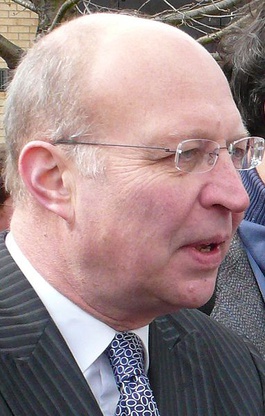
Italy and beyond: say no to criminals in European parliament
Published on
Translation by:
 Michelle Williams
Michelle Williams
Andrea D'ambra, the same man who launched a petition in Italy to abolish mobile phone top up charges, has now launched a campaign across Europe to say 'that's enough!' to MEP's with criminal records or fines for illegal activity. This is a widespread Italian problem which is now being exported across Europe
As far as the Italians are concerned, those who should be leaving are: Vito Bonsignore and Aldo Patriciello (European people's party, EPP), Mario Borghezio (union for Europe of nations, UEN) and Gianni de Michelis (party of European socialists, PES). All have been sentenced in court for serious criminal offences relating to corruption charges, discrimination and illegal financial practices.
Italy: a European problem
It's not just an Italian concept. Even people abroad understand that those asked to leave their own political parties will simply 'break away'. That was the case for example with English MEP Ashley Mote who was found guilty of benefit fraud. The differences in how the accused are treated in Italy and how they are treated in other countries can be seen in the behaviour of the UK's independence party (UKIP). As soon as Mote was found guilty in August 2007, he was expelled from the party. Consequently he changed political allegiance, to no longer belong to a specific political party. Another example is the French politician Jean-Marie Le Pen, founder and leader of the extreme right-wing national front, who gathered together a string of 'criminal' politicians to try and incite racial hatred together.
 Today anyone sentenced by the 1976 European act which concerns the election of the European parliament representatives by direct universal suffrage has to be expelled by his party and return to his native country. In Italy a sentenced person cannot even be a caretaker in a school. However, no law exists which forbids those who've been found guilty of criminal offences from being elected to parliament (there is however a 'law of popular initiative' signed by more than 350, 000 people in the senate still waiting for parliament to 'find the time' to approve it). Last autumn the European parliament's constitutional affairs committee undertook a modification of the act which governs European elections. The speaker for this act is the English MEP Andrew Duff. It speaks of a minimum and maximum term length for those elected, but doesn't refer at all to the ineligibilty of those candidates with convictions.
Today anyone sentenced by the 1976 European act which concerns the election of the European parliament representatives by direct universal suffrage has to be expelled by his party and return to his native country. In Italy a sentenced person cannot even be a caretaker in a school. However, no law exists which forbids those who've been found guilty of criminal offences from being elected to parliament (there is however a 'law of popular initiative' signed by more than 350, 000 people in the senate still waiting for parliament to 'find the time' to approve it). Last autumn the European parliament's constitutional affairs committee undertook a modification of the act which governs European elections. The speaker for this act is the English MEP Andrew Duff. It speaks of a minimum and maximum term length for those elected, but doesn't refer at all to the ineligibilty of those candidates with convictions.
To this day not one Italian MEP has expressed support for this act. The four Italians who help to make up the constitutional affairs committee - Monica Frassoni (green/ European free alliance), Riccardo Ventre (EPP), Luisa Morgantini (nordic green left society, who is always on her best behaviour in parliament) and Mauro Zani (PES), did not reply to my emails, sent on the advice of Hans-Gert Pottering, the German president of the European parliament. Neither were any of the 78 Italians elected to parliament. Fotunately positive signals have finally appeared from MEPs of other nations eg: the president of the constitutional affairs committee, the German Jo Leinen and the English Richard Corbett (PES), and two MEPs from the alliance of liberals and democrats for Europe (ALDE): Andrew Duff and the German Alexander Alvaro.
Therefore I have decided to launch an initiative on my blog to demand the modification of this act, which gives the European parliament the authority to impose its influence on the elections and to explain the ineligibility of candidates with criminal records (passed in courts) in a way which is uniform across the whole of Europe and which bans criminals from parliament.
Read the author's (Italian)blog
Translated from Basta condannati al Parlamento europeo


